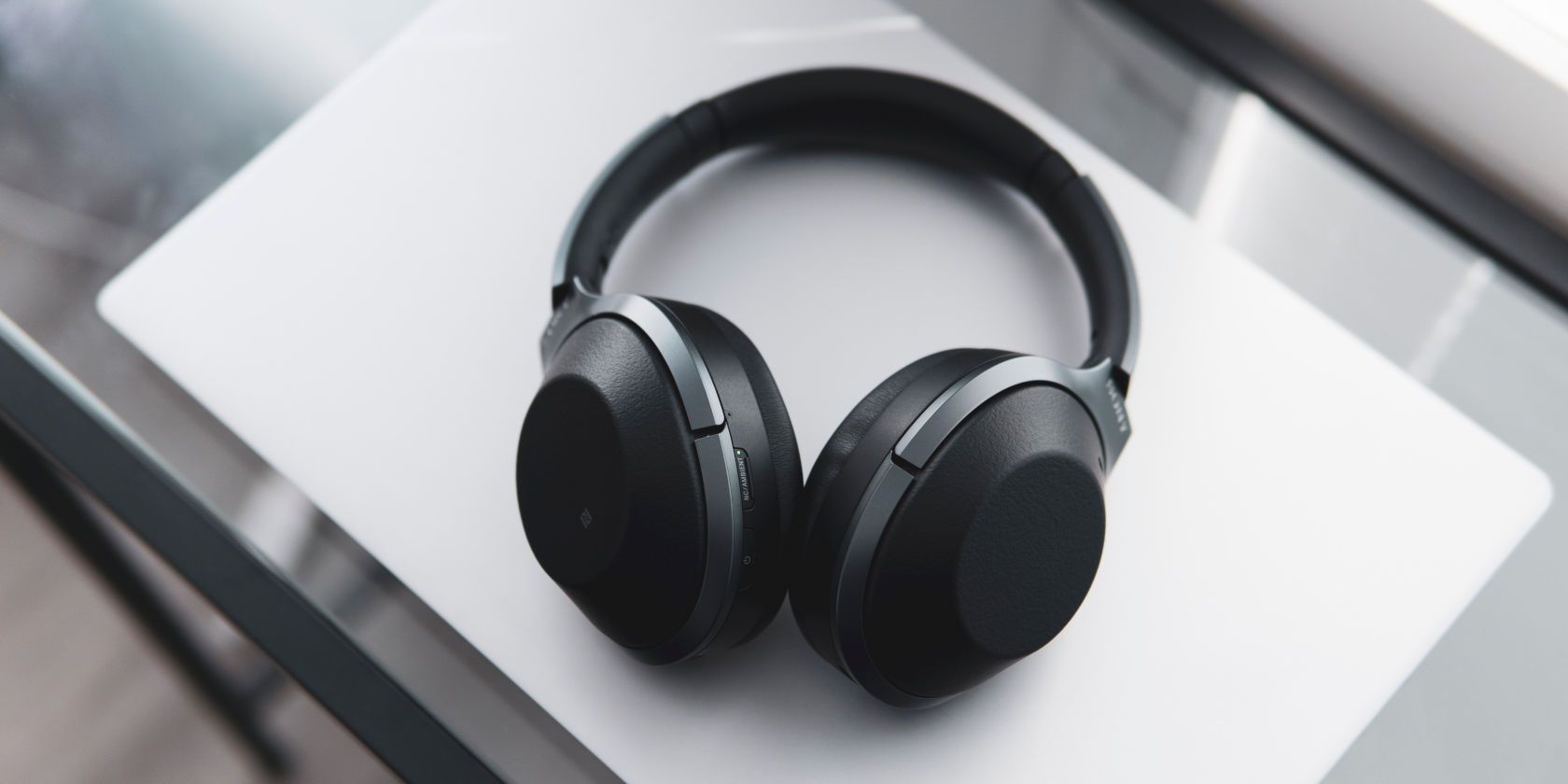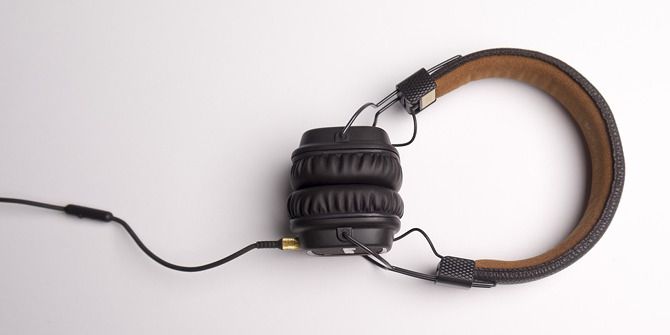
Every pair of headphones will break. It’s a delicate device with lots of intricate components, and those components will get jostled and wear down with time, leading to inevitable malfunctions. You can postpone it, but you can’t prevent it.
But if your headphones always die within a year, you’re doing something wrong.
I’ve worn a range of headphones from $10 pieces of junk to $350 beauties, and they’ve all lasted me at least three years. Some of them still work to this day, stashed away as backups. If you take proper care, you can double or even triple the expected lifespan of any pair of headphones.
Why do your earbuds and headphones keep breaking? Here are several common mistakes that’ll kill your headphones before their due time.
1. Rolling Over the Cord

Cord lengths for headphones can get pretty long. The Audio-Technica ATH-M50x and Sony MDRV6 both have cord lengths of 10 feet, and even cheaper but high-quality headphones can come with cords that are 5-8 feet long.
You may be tempted to let such a long cord hang out on the ground. If so, take extra care that it can’t ever be stepped on—or worse, rolled over by the casters on your computer chair. It only takes one severed point to render the whole thing useless.
2. Letting the Cord Dangle
Here’s another way to damage long-cord headphones: letting the cord dangle off the edge of a desk, either when resting or while in use. It’s a risk even with the best wired headphones.
A dangling cord is basically stuck bent at a 90-degree angle, and that puts undue stress on the internal wire at that point. Think of it like a staple: bend it back and forth, it will break. If you ever press or pinch the cord against the edge by accident, it could sever the internal wire.
3. Forgetting They’re on Your Head

This happened to me many times back in my gaming days. I’d sink hours into Counter-Strike or Dota 2, and as soon as a match ends, I’d rush off to the restroom—forgetting to first take the headphones off. Snap, clatter, facepalm.
Snapping a cord like that puts a lot of sudden tension on the internal wires and their connection points. The headphones may not break the first, second, or even third time it happens, but the damage is cumulative. Every cord snap is one snap closer to a malfunction.
4. Winding the Cord Into Knots
Have you seen those “lifehacks” that show “ingenious” ways to wind up cords so they don’t tangle? Well, ignore them! Especially the ones aimed at earbud users. If you wonder why your earbuds break so easily, that could be the reason: tight loops and knots speed up the wearing down of internal wires.
Never tie knots. Avoid tight loops. Looser is always better.
If you need a lifehack for your earbuds, wrap the cord around a toilet paper roll with notches for the plug and the buds. For regular headphones, use the “roadie wrap” method shown in the video below. You can then push two ends of the circle together to form a figure eight and secure it with a rubber band or twist tie.
5. Traveling Without a Case
Stop tossing your headphones and earbuds into pockets, backpacks, or purses. No matter how careful you are, the container contents will get jostled and cause the cord to get pulled, stretched, twisted, bent, pinched, crushed, and damaged.
And if you leave the cord plugged into your phone, for example, then heavy objects can bump into and damage the connection point. An L-shaped jack can mitigate this somewhat.
Whenever possible, use a case. My Brainwavz HM5 came with a hard case, and most high-quality headphones do as well these days. Earbuds can be kept in something like this HiGoing Carrying Case. If your headphones have a detachable cord, you can also keep that in a hard case for earbuds. Worst case, a soft pouch is better than nothing.
6. Pulling the Cord, Not the Plug
Here’s another huge reason why your headphones keep breaking: pulling on the cord causes stress where the cord meets the plug. Over time, pulling can cause the internal wire to break and separate from the plug.
This is also true for earbuds. When you’re done, do you tug on the cord to pop the buds out of your ears? Due to unequal stresses, one of the internal wires will break before the other, leaving you with earbuds that only play audio out of one side.
Never pull the cord! Tension is the main reason why your headphones break. You can force yourself out of this habit by switching to a cord that has an L-shaped jack, which is impossible to unplug by cord-tugging.
7. Exposure to Sweat and Moisture

Electronics and water do not go together. Just as it can fry your smartphone or tablet, water can fry the audio drivers in your headphones.
Sweat can be a huge problem, especially if you listen to music while exercising. A headband can reduce the risk of sweat, but you’re better off getting headphones for sport or exercise, which are designed with sweat in mind. The audio quality may not be top-notch, but at least it’ll last.
Avoid using headphones when you’re in the rain or directly out of the shower. Water can run down from wet hair and into cracks. High humidity may also speed up deterioration of internal components over the long run.
8. Sleeping With Them On

You can’t control how you move when you’re asleep. You roll around, flop about, and twist and turn. At the very least, there’s a good chance you’ll snag the cord. You might also cause damage to the headphones themselves as you sleep on them with a heavy head.
Skip the headphones and listen to whatever you’re listening to using an Amazon Echo, which you can turn on and off with your voice. If that’s not an option and you must sleep with headphones, consider grabbing a pair of wireless earbuds.
9. Cranking Up the Volume
All noise-producing devices do so by creating sound waves. Sound waves are produced by vibrations, and the louder the sound, the greater the vibrations. Because headphones components are delicate, excessive volume can warp the sound-producing parts.
At first, you’ll stop hearing certain frequencies. The audio will shift and degrade, losing its full-bodied qualities. As it gets worse, sounds may start to feel more “tinny” than normal. Over time, you’ll hear buzzing and other irritating artifacts.
10. Skimping on the Price Tag
Paying more does not guarantee a better product (e.g. Apple and Beats), and cheaper products can be well-made and built to last (e.g. Panasonic ErgoFit Earbuds). But generally speaking, you get what you pay for.
I’ve managed to make cheap headphones last for years, but don’t be surprised when your $20 overseas knock-off headphones kick the bucket in three months. Robust materials, smart designs, and quality control all come with a price. To pay less, you’ll need to sacrifice something.
Consider the Benefits of Wireless Headphones
You’ll notice that most of the mistakes above involve the cord, not the headphones. If you can eliminate the cord altogether, your headphones will probably last a lot longer. So, consider switching to wireless headphones.
But before you do, check out our tips for buying wireless headphones because there are some nuances you’ll want to know about.
Read the full article: Here’s Why Your Headphones Keep Breaking (And What You Can Do)
Read Full Article
No comments:
Post a Comment